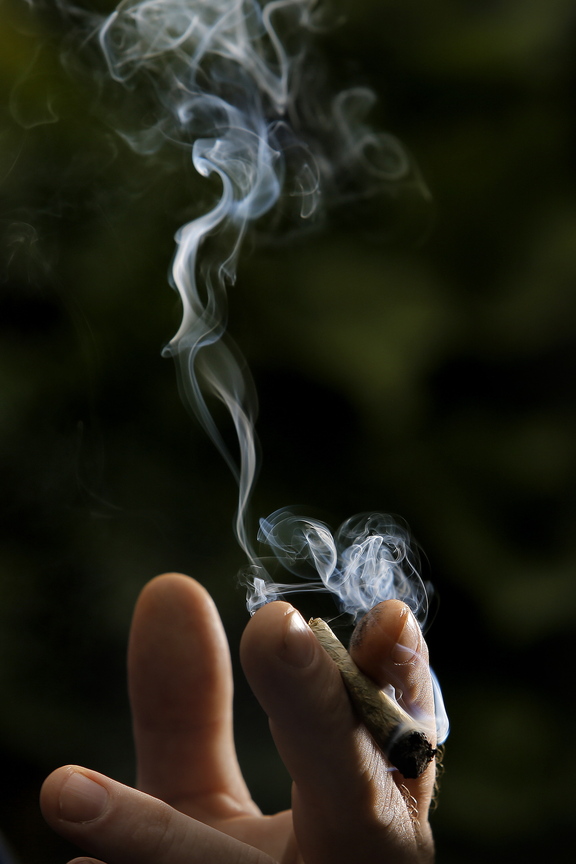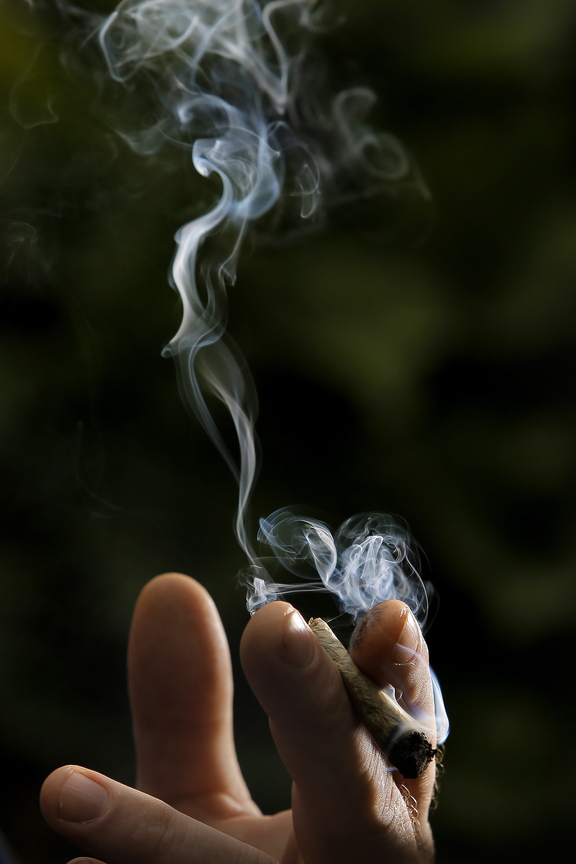PORTLAND — Over this past year, the marijuana legalization debate has taken place in the media and in the Legislature.
We now have the opportunity to unpack this issue and have meaningful conversation at our kitchen tables based on data and research, thanks to the Legislative Council’s vote not to consider during this short session L.R. 2329, a bill that would legalize, tax and regulate the non-medical use of marijuana.
Legalizing marijuana would have massive public health implications. There is no need to rush this. We need to step back, study what works to prevent youth’s access to marijuana and craft sound policy based on what we learn.
Other places have already legalized marijuana. We do not need to follow suit and needlessly subject our communities to a grand experiment. We need to craft policy not in a vacuum or pushed by a small group of out-of-state special interests, but in an open forum by and for a diverse group made up of the people of Maine.
YOUNG PEOPLE EASILY INFLUENCED
First, let’s look at some common misunderstandings as well as the effect we are having on youth’s perceptions of risk and harm and use rates.
The passage of the Portland ordinance does not give the OK for anyone under the age of 21 to use marijuana. In fact, Portland’s ordinance changes very little. Possession of up to 2.5 ounces is still a civil violation in Maine – as it has been since 2009.
Police are sworn to uphold Maine and federal laws. Police cannot get into trouble for enforcing marijuana laws. To learn more, visit the city’s list of frequently asked questions about marijuana use and possession at the portlandmaine.gov website.
Messages like those from the well-funded Washington, D.C.-based Marijuana Policy Project, support what some would like to believe: that the drug is harmless, good for you, and using it is without consequences.
Advertising, promotion and marketing work; if they didn’t, billions of dollars would not be spent on beer ads during the Super Bowl. Clearly, whatever is next needs to include bans on all outdoor marijuana advertising and restrictions on promotions and sponsorships, as well as the banning of products that appeal to youth.
In the 2011 Maine Integrated Health Survey, 28 percent of Portland high school students report having used marijuana in the past 30 days. The number rose 5 percentage points between 2009 and 2011 and is 5 percentage points higher than the rate for all Maine students.
Not only was the amount of marijuana one can possess for a mere civil violation increased in 2009, but the debate on medical marijuana also was active during this time frame. Access, availability and community norms have a profound effect on youth’s drug use. Moving forward we need increased efforts to educate parents on marijuana prevention.
So what is so wrong with just taxing and regulating marijuana in order to prevent use by young people?
Alcohol has been legal, taxed and regulated since the 21st Amendment was ratified on Dec. 5, 1933. Today, 67 percent of Maine youths report easy access to alcohol. In Portland, during recent off-premise compliance checks of 80 businesses, 27 percent sold alcohol to a minor and 50 percent of establishments where alcohol is sold to be consumed on-site sold alcohol to a minor.
Youths also report easy access to alcohol in the home, from older friends and relatives, at parties and from adults who furnish it to them.
Legalized marijuana would be similarly diverted, and it would not stop current use by young people. Taxing and regulating marijuana cost money, as does dealing with the increase in the number of people who become addicted to the drug.
COMPREHENSIVE STUDY NEEDED
According to the federal Centers for Disease Control and Prevention, alcohol abuse costs every Mainer about $666. It is pure conjecture that Maine would see any revenue gain from a plant that many are already growing in their own homes.
At what price point does it become easier to purchase legal marijuana instead of growing it? Is that a lower price than those on which current projections are based? Pricing and promotions are linked to affordability and access.
We know from tobacco and alcohol that the cheaper the product, the more it is abused and accessed by youth.
Maine should form a bipartisan commission reflecting a wide range of opinions to study our current laws, enforcement efforts and the 2013 Maine Integrated Youth Survey data and research what legalization has done in states like Washington and Colorado.
Only then, armed with facts we can all agree on, should we begin to decide what is best for Maine.
— Special to the Telegram
Copy the Story LinkSend questions/comments to the editors.




Success. Please wait for the page to reload. If the page does not reload within 5 seconds, please refresh the page.
Enter your email and password to access comments.
Hi, to comment on stories you must . This profile is in addition to your subscription and website login.
Already have a commenting profile? .
Invalid username/password.
Please check your email to confirm and complete your registration.
Only subscribers are eligible to post comments. Please subscribe or login first for digital access. Here’s why.
Use the form below to reset your password. When you've submitted your account email, we will send an email with a reset code.